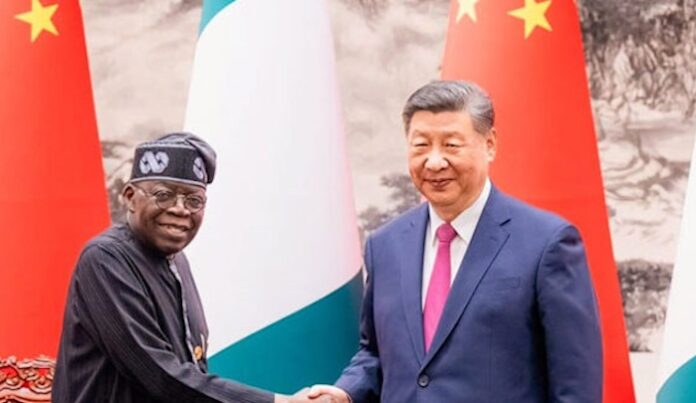The United States Government has provided $32.5 million to the World Food Programme (WFP) to address urgent food and nutrition needs among conflict-affected populations in northern Nigeria.
According to a statement released on Wednesday by the U.S. Embassy in Nigeria, this contribution aims to deliver food assistance and vital nutritional support to over 764,205 internally displaced persons (IDPs) across the North East and North West regions.
“This includes complementary nutrition top-ups for 41,569 pregnant and breastfeeding women and girls and 43,235 children through electronic food vouchers,” the statement read.
The embassy emphasised that the contribution is aimed at saving lives and alleviating the suffering of vulnerable groups.
This support arrives amid a worsening “unprecedented hunger crisis” as projected by the UN with its food agency’s regional head, Margot van der Velden reporting in July that nearly 31 million Nigerians now face acute food insecurity, equivalent to the entire population of Texas.
In conflict zones particularly, over 1.3 million people risk losing access to essential food aid while 150 nutrition clinics in Borno State may be forced to close placing 300,000 children at heightened risk of severe malnutrition and leaving 700,000 displaced persons bereft of support.
WFP’s operations in Nigeria have already proven essential. During the first half of 2025, the agency reached 1.3 million people with life-saving assistance in northern regions. Without renewed funding, these programs are on the brink of halting entirely, jeopardizing food security and heightening the risks of forced migration or recruitment by armed groups.
The scale of displacement compounds the severity of the crisis. UNICEF reports that around 2 million people remain internally displaced in the North East (Adamawa, Borno, Yobe), with an additional 514,490 displaced in the North West (Katsina, Sokoto, Zamfara), and 401,403 in Benue State, largely due to farmer-herder conflict. In total, 3.5 million people in Nigeria were internally displaced by the end of 2024, according to UNHCR, the majority of whom are in dire need of humanitarian assistance.
Education and health services are also under strain. Funding withdrawal has disrupted schooling and healthcare access in conflict zones like Maiduguri, where scholarships and support structures for children impacted by Boko Haram had relied heavily on foreign aid.
Moreover, 652 children died from malnutrition in Nigeria’s Katsina State during the first half of 2025, a 208 per cent surge attributed to funding cuts that dismantled vital nutrition programs.
According to the U.S. State Department, the assistance also covers food commodities, targeted nutrition support, and emergency logistics.
The announcement follows Washington’s August rollout of a $93 million emergency food aid programme covering 13 nations, including 12 in Africa. The package is expected to provide ready-to-use therapeutic food for nearly one million children suffering from severe malnutrition.
Countries benefiting from the wider programme include: Haiti, Mali, Niger, Ethiopia, Sudan, South Sudan, Nigeria, Madagascar, the Central African Republic, Democratic Republic of Congo, Djibouti, Kenya, and Chad.

